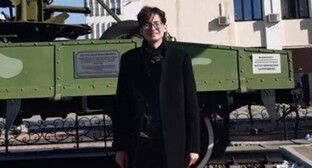03 April 2012, 22:00
ECtHR refuses to find Russia guilty of violating rights of defrauded investor from Krasnodar
Today, the European Court of Human Rights (ECtHR) has ruled on the case "Kotov versus Russia" and refused to find the Russian Federation guilty of violating the rights of Vladimir Kotov, a defrauded investor – a resident of Krasnodar.
The applicant – Vladimir Kotov, 64, a resident of Krasnodar, – has asserted that in 1994 he invested his money in the amount of 3330 roubles for the term of one year at the interest of 200 percent per annum into the Commercial Joint-Stock Bank "YURAK". Then, Kotov tried to get his money back, but the bank refused to do it.
According to the Human Rights Centre (HRC) "Memorial", whose lawyers defended the interests of the defrauded investor at the ECtHR, in 1996 the above bank was declared bankrupt. After a series of lawsuits in Russia, Vladimir Kotov was found to be a victim, but he never received his money back – on June 17, 1999, the bankruptcy procedure was over, because the bank had no more funds.
The complaint was filed by Vladimir Kotov to the ECtHR on July 15, 1998. On January 14, 2010, the ECtHR found Russia guilty of violating Article 1 of Protocol 1 (the right of everyone to protection of his or her property) to the European Convention on Human Rights and Fundamental Freedoms (ECHR).
However, at the request of the Russian government, which disagreed with the decision, the case was delivered for review to the Grand Chamber of the ECtHR. After the hearing at the Grand Chamber, the ECtHR concluded that the applicant's rights had not been violated by the state, says the press release of the HRC "Memorial" received by the "Caucasian Knot".




